- Home
- Anne McCaffrey
Acorna’s Search Page 3
Acorna’s Search Read online
Page 3
(True,) Acorna agreed. To Maati she said, “You remember that place we were in within the holo-bubble, right at the beginning? With the beautiful mountain and the waterfall and lake?”
“Yes. Are we going there tomorrow?”
“We are here now. This is that place,” Acorna told her.
“But—it is so flat,” Maati said, bewildered. She was not at all stupid, but the concept of total terrestrial destruction was a large one to absorb, especially in the presence of the reality of the thing. This rather savage and uncertain “prettiness,” first vestige of life among the ruins of Vhiliinyar though it might be, was a far cry from the deeply spiritual beauty of the mountain with its glorious waterfall and wine-hued lake that she’d seen in Hafiz’s holo.
“It’s not as flat as it appears. We had to climb quite steeply to land here. And the vegetative growth is no doubt due largely to the residual moisture from the lake. Perhaps not even the Khleevi could destroy it entirely.”
“Its very waters were known to have healing powers akin to those of our horns,” Thariinye said.
“That is clearly no longer the case,” Aari said, with a snort to dislodge the stench of the place—a mix of rotting vegetation and who knew what else—from his nostrils.
“The presence of the plants means that there is water here,” Acorna said. “We should purify it, but perhaps it would be wise to explore this forest a little at a time at first, until we can analyze just what it consists of, and what pollutants are present in the water and the vegetation.”
Aari nodded. “There are chemical combinations that could eat right through what we’re wearing before we could purify it with our horn. There are even chemicals the Khleevi developed that can eat through Linyaari horns themselves.”
Maati and Thariinye exchanged startled glances. The idea that any chemical could be so strong as to counteract the purifying effects of their horns, and harm the horns themselves, was totally alien to all they knew about their own abilities. And more alien was the thought that such hostile strangeness could exist here, on what had once been the safest place in the universe to be Linyaari.
The pallid sun drooped near the scarred horizon, and Acorna said, “Let’s settle in for the night here. For now, we should perhaps use only the water and food we brought with us from MOO.”
Her opinion was unanimously accepted, and after a quick meal of water and dried grasses, they spread air mats over the rocks and arranged the flitter’s attachable awnings as tents over their small campsite.
The flutter of useful activity served to calm Acorna’s nerves, which were, if not exactly jangling, at least on red alert. An air of menace pervaded this spot, the very place, however unrecognizable, that had seemed to be the epitome of peace and serenity in Hafiz’s holo. At least she wasn’t alone in her concern. Aari was alert to the slightest shift in air currents, the least nuance of shifting current in the miasma of rot and waste simmering around them.
RK, too, that veteran of a thousand adventures, clearly was displeased with the place. He stayed near the Linyaari, slinking with his belly dragging the rocks, his ears rotating constantly, his whiskers and fur bristling, his upper lips raised above his fangs in a snarling expression that uncovered the scent glands on either side of his muzzle. He looked like a creature from a nightmare.
Maati reached out to stroke him. He allowed the small caress after almost taking off her hand. He rubbed it with his head in apology, but continued to slink and prowl about after she released him.
Thariinye, meanwhile, was lamenting, “We could have brought our traveling pavilions if the Khleevi hadn’t destroyed so many homes on narhii-Vhiliinyar. They would have been much more comfortable than these makeshift shelters.”
“I thought you were the rugged adventurer,” Maati chided, “used to surviving in the worst possible circumstances with nothing but your wits, never mind a pavilion!”
“These are among the worst possible circumstances, would you not agree, Aari? Khornya? Even with these sleeping pads, we are unlikely to find a rock level enough to rest our flanks upon, much less our shoulders. I cannot imagine that any of us will be able to sleep.”
Acorna said, “Nor can I. So I will take first watch.”
“Watch?” Maati asked. “Watch what? This planet can’t sustain sentient life. I thought we’d established that. Well, except for these jungly plants and that scuttling thing and—I guess I see your point.”
“I will watch, also,” Aari said. “It may be best to do so in pairs for now.”
“I might as well watch with you also,” Thariinye said, “because I cannot imagine that I will sleep a wink in this place.” But he did, and almost immediately. The sound of his snoring soon filled the air. It was a calming, familiar noise.
Acorna and Aari sat, relaxed, each with one knee drawn up to their chins, each with one leg dangling over the side of the largish rock on which they perched. They gazed toward the jungle growth slightly above them, instead of back in the direction from which they had flown. The leaves and fronds of the strange forest were not outlined black against the night, as they might have expected, but instead glowed in the darkness with a greenish iridescence. A small wind stirred the leaves. Otherwise all was silent.
Acorna almost expected to hear a birdcall, or the snuffle of some smaller creature in the woods around them. Neeva had told her once of the endearing furred creatures that lived in the forests of Vhiliinyar before the Khleevi came—but they were no longer here, and the jungle was nothing but mutated weeds and brush grown very tall. The creatures of old Vhiliinyar sang in lovely voices and delighted all who heard. The grace of their forms entranced all who saw them. Acorna wondered—had aagroni Iirtye managed to save specimens of all those creatures, or even samples of their cells to clone them from later on? What a wrenching loss it must be to have known such creatures well, and to lose them, along with all of the other wonders this planet had held when it was beautiful and whole.
Absorbed in her thoughts, it took Acorna a moment to realize she was hearing a noise, a soft snuffling sound, from beside her. Trails of tears ran down Aari’s face.
She took his hand. (Penny for your thoughts, or was I broadcasting, and you were responding to mine?)
He sniffed again and turned a chiseled manly countenance to her. (What is a penny?)
(A primitive coin used by one of the nations of humankind before it became so devaluated it was not worth the materials needed to create it.)
He gave a short laugh. (Ah, a coin worthy of my present thoughts, indeed. Which are that we would have a better chance of re-forming narhii-Vhiliinyar into a semblance of Vhiliinyar than we have to transform Vhiliinyar to its former state, as the aagroni wishes. Who would have thought even the Khleevi could so mutilate the landscape that its own people could not recognize it? I was wondering where the mountains were, where the lake was, and the waterfall. I see nothing here that resembles them.)
(And yet they are here,) Acorna pointed out. (I sense the iron and granite of the mountain, and the plateau—the bones of that formation run beneath us and all through the area. Also the waters of the lake and cascade are here, though there are elements of sulfur and mercury and other contaminants in them. I do not think it will destroy our horns to purify that water. But there is something worrying about those plants…)
They heard something then: the thump of paws jumping down and a scattering of small stones beneath soft footpads. Looking in the direction of the sounds, they saw the movement of a dark plumed tail hovering at the edge of the plants. RK, Acorna realized, had decided to relieve himself and he wished to perform his duties unobserved, but he was not happy about the only available cover. The cat emitted grumbling growls and plaintive meows to show what he thought of the feline sanitary facilities available at the campsite. Instead of plunging into the growth, he began to skirt it, his ears still flattened, his tail twitching with frustration, searching for a way to conceal himself without having to actually step between the plants.<
br />
Acorna and Aari observed their former shipmate, amused. (We won’t watch,) Acorna promised RK.
This produced no visible change in the cat’s behavior, but in a moment he disappeared from sight and the Linyaari couple concluded he had found what he was looking for.
Then an earsplitting yowl burst from the greenery several yards to the left of the campsite.
Acorna and Aari jumped to their feet, stumbling over the rocks in the dark. Acorna fell heavily and scraped the skin from her right arm and knee.
Aari turned back to her, his horn lowered to help with the healing, but Acorna waved him on urgently.
(This will keep. See to RK. Help him!) she insisted above the cat’s caterwauling as she climbed painfully to her feet. (That does not sound like a cat bellyache to me.)
She brushed her wounded arm over her horn but the cat screamed before she could touch her leg. Her wound could wait. Something was very wrong with RK. She moved as fast as she could toward the noise. Sounds of thrashing and howling, snarling and more shrieks and screams rang through the night as she limped forward to see one of the tall plants whipping a furry tail back and forth in the air. Nothing remained evident of RK but his furious cries and his tail. A huge green bulbous protuberance on the plant concealed the rest of the cat.
Aari leapt for the lashing tail but it whipped out of his grasp.
They had no weapons handy, no implements or utensils that would be useful in destroying the plant. And RK’s cries were growing weaker, strangled, more pitiful. They had to do something…now!
Acorna grabbed the stalk in both hands and plunged the tip of her horn into it, deeply. Her assault split the stalk. Thus weakened, its top half dropped. Acorna caught the broken plant bulb in her hands, preventing it—and RK—from hitting the rocks.
Thariinye and Maati, awakened by the commotion, joined their friends, which was just as well, since it took the strength of them all to pry open the bulb of the plant from around RK.
First they saw nothing but his tail, then his writhing back end, the legs jerking and claws churning. But the cat’s legs and flanks were denuded of fur, and raw looking. They could scarcely bear to look as they pried the rest of the plant loose from the animal.
Digestive acids had caused great burns on poor RK’s affected hide. But the cat wouldn’t give up the fight. He still had the strength to squirm so hard that it took all four of them to restrain him while pulling him free of the plant.
(We might have known the only living things the Khleevi would leave behind would be carnivorous plants!) Acorna said. Some of the other plants seemed to leer at them in the dark.
They pulled the injured cat back onto the rocks with them, where all four began laying on horns to poor RK’s denuded and sore-covered body. His ears were the worst casualties of his adventure, and his nose was deeply burned. The cat choked and coughed, making strangling noises, as his throat swelled.
Naturally, for RK’s mouth had been wide open as the cat shrieked his anguish and rage while the plant’s digestive juices poured in to make a meal of him. Acorna, as gently as possible, pried the cat’s muzzle open and inserted the tip of her horn to heal as much of the damage as she could.
In order for all four well-grown Linyaari to bend over one Makahomian Temple Cat, however large and fierce it was for its species, it required a certain amount of contortion that would have been comical to an outside observer. Acorna squatted down so that she put no pressure on her horn as it healed the cat’s mucous membrane, lungs, esophagus, and other internal organs damaged by the juices. Aari rubbed the nub of his still stunted horn gently across the red and weeping stumps of RK’s ears. Maati and Thariinye used their horns to close and heal all of the lesions and restore life to the cat’s damaged exterior, though Thariinye winced in sympathy as he did so.
As RK’s breathing returned to normal and his pulse grew stronger, he began to shiver, and Acorna stripped off her shirt and wrapped it around the cat. “Even though the night is warm, he’s chilling without his fur,” she fussed maternally, and felt a brief flash of affectionate amusement from Aari. Handing RK to Maati, who rocked the cat as if he were a baby and crooned to him, she and Aari returned to the plant she had horned. She sank her horn into it again, stabbing it repeatedly, while Aari pulled and tore at it, until they wrenched the top half of the plant free from the rest of its stalk and carried it back to the flitter.
Thariinye had already begun to strike camp. The Linyaari had needed no thought-talk to be in common accord that they would not remain in this spot for another moment. They were better off in the destroyed stone canyons than here. They needed a less exposed area for RK to finish healing in. Besides, the aagronis should have the specimen of the plant they’d found to analyze immediately. It was time to head back to the base camp.
Was the strange plant that had nearly killed RK a mutation of some more benign plant that had once grown on Vhiliinyar? Or was it perhaps an infestation that had been a farewell gift from the Khleevi? Best to have it analyzed while the sample was still fresh.
En route, they tried several times to alert the base camp of their unexpected arrival, but surprisingly could rouse no response on their com unit.
“Why doesn’t anyone answer us?” Maati asked the first time their hail was ignored. “That’s funny. I thought Mother said they were going to monitor the com around the clock. Maybe the scientists got their noses into experiments and are ignoring it.”
But their subsequent attempts at communication were also unanswered. Acorna once hailed her aunt’s flitter to see if their com unit was functioning. It was—Neeva replied in a sleepy voice. Their party had not tried to reach the base camp and so far their assignment had proven uneventful. Her aunt offered help and shared her concern, even though she tried to sound reassuring.
“I’ll try them from here and let you know if we reach them, Khornya,” Neeva promised. “Your site is a great deal farther out than many of ours. Perhaps we miscalculated the range of the flitter transmitters?”
But even as the flitter neared the base camp their hails went unanswered.
When they touched down on the site of the former Linyaari graveyard, everything was as still as it had been when the bones of the ancestors were the only inhabitants of the place.
The base camp was dark, the double pavilion provided by House Harakamian for the laboratory silent except for the vague snatches of dreams Acorna caught coming from the inhabitants. Normally Acorna was not able to pick up dreams, but Vhiliinyar was so abnormally quiet, the unguarded thoughts of those who slept were like sharp bursts of song from startled birds.
“They posted no guard,” Aari said. “Unbelievable.”
(Son! Maati!) His mother woke all at once and sat up on her sleeping pallet. He could see her in his mind’s eye, and through him, Acorna saw her, too. (What is it?)
(We need your advice, Mother. A hostile plant attacked RK and nearly devoured him.)
(What sort of plant?) This was the aagroni, his thought voice husky with troubled sleep, and brusque with trying to separate what he was hearing from his dreams.
(Not of Linyaari origin that I can tell, aagroni.) Aari, the only one of their team to have lived extensively on Vhiliinyar, was the obvious one to answer. (Perhaps it is a mutation?)
(Or some Khleevi monstrosity left behind!) the aagroni said.
(There is an entire forest of them on our site. We will need to remove some portion of that forest in order to safely examine the area,) Acorna said.
(Not before I’ve had a chance to study it!) the aagroni declared.
(No, of course not, but could you please study RK, too, and perhaps find a way to hasten the regrowth of his fur?) This was from Maati in an aggrieved tone. (He is cold and—embarrassed—without it.)
(Why were we not informed of your arrival?) the aagroni asked. (You should have sent word. We are wasting valuable time.) As he said this he was pulling on his robe with one hand and setting up beakers and trays with the other.<
br />
(We tried to send a message, but no one was receiving,) Aari informed him with an edge of disapproval, (probably because you were all asleep.)
(Liriili didn’t answer? But she was standing sentry, supposed to answer any hails. How often did you try?)
They assured him they had tried often enough that if Liriili had been alert, she would have heard them. It occurred to Acorna that the contrary former administrator might have ignored them simply because she disliked all of them—except that Acorna had been very specific about the carnivorous plant and the terrible injuries to RK. Liriili had an odd partiality for the Makahomian Temple Cat—odd because she liked almost nothing else, not because RK wasn’t loveable. The former viizaar might well berate Acorna’s team for failing to take proper care of the feline, but she would hardly ignore requests to stand by to assist with his emergency treatment.
The mystery of Liriili’s absence was temporarily forgotten as the aagroni took charge of RK, who, with four Linyaari horns to heal him, was purring madly most of the time, except for growls when he went to lick his furless body. His sudden condition clearly perplexed and upset the cat, and he glared at the anxious faces around him, his expression murderous, as if demanding to know who had made off with his coat. Maati stroked the cat’s head with one finger while the aagroni analyzed the fur on his tail to see if it could be restored more quickly than nature alone would permit.
The plant specimen commanded the attention of the other scientists.
Acorna, still uneasy, wandered around the laboratory and sleeping quarters, but nowhere did she see Liriili curled up in a corner, neglecting her duties in favor of sleep.
As she left the pavilion, Aari emerged from the cave where he had once taken refuge until rescued by Becker and RK.
(She’s not there,) he answered Acorna before she could ask. (It is as if the planet has swallowed her up, Khornya. I know every rock in this area and she is simply not here. I cannot see, hear, smell, or read her. Of all the places on Vhiliinyar, this is the one where I would most feel our people could be safe. And yet…she’s gone.)

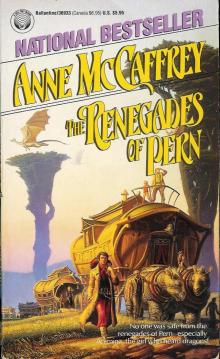 The Renegades of Pern (dragon riders of pern)
The Renegades of Pern (dragon riders of pern)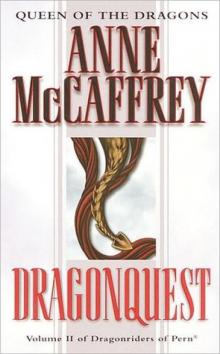 Dragonquest
Dragonquest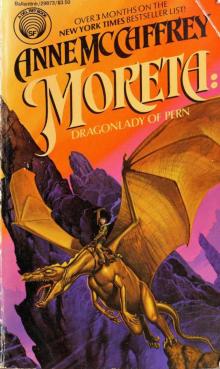 Moreta (Dragonlady of Pern)
Moreta (Dragonlady of Pern)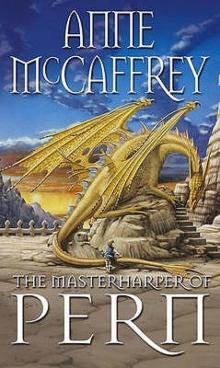 The Masterharper of Pern
The Masterharper of Pern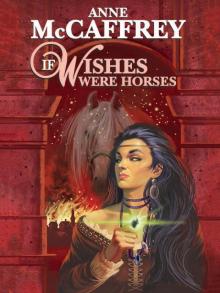 If Wishes Were Horses
If Wishes Were Horses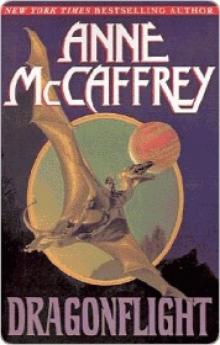 Dragonflight
Dragonflight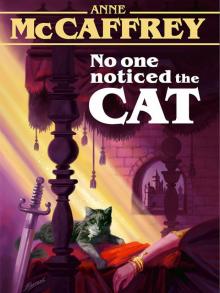 No One Noticed the Cat
No One Noticed the Cat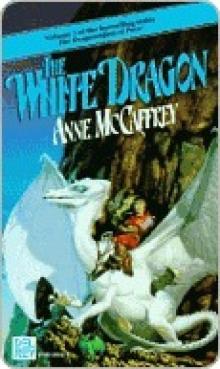 The White Dragon
The White Dragon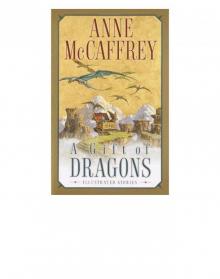 A Gift of Dragons
A Gift of Dragons Harper Hall - Dragonsong
Harper Hall - Dragonsong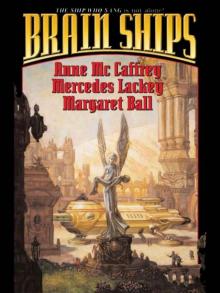 Brain Ships
Brain Ships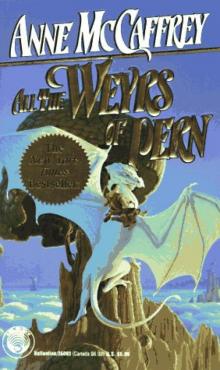 All The Weyrs of Pern
All The Weyrs of Pern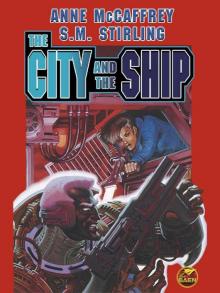 The City and the Ship
The City and the Ship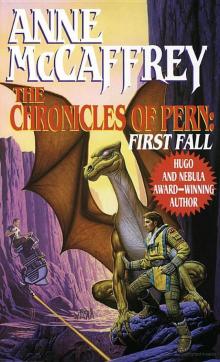 The Chronicles of Pern: First Fall
The Chronicles of Pern: First Fall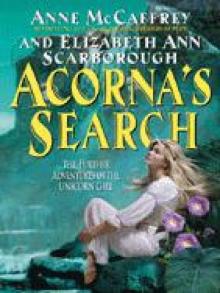 Acorna’s Search
Acorna’s Search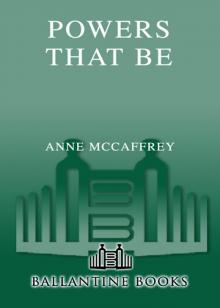 Powers That Be
Powers That Be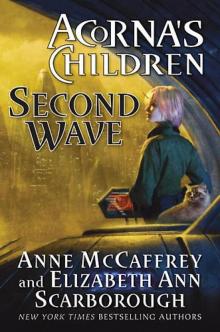 Second Wave
Second Wave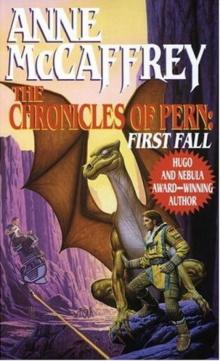 Chronicles of Pern (First Fall)
Chronicles of Pern (First Fall)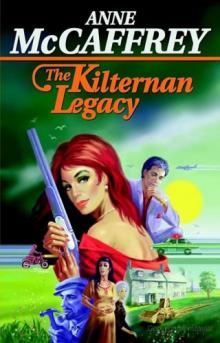 The Kilternan Legacy
The Kilternan Legacy Decision at Doona
Decision at Doona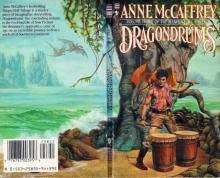 Dragondrums (dragon riders of pern)
Dragondrums (dragon riders of pern)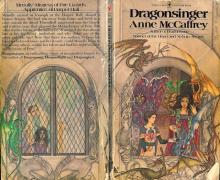 Dragonsinger (dragon riders of pern)
Dragonsinger (dragon riders of pern)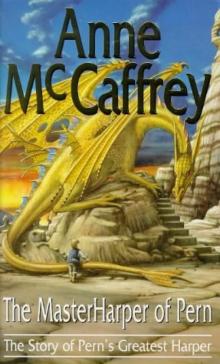 The Master Harper of Pern
The Master Harper of Pern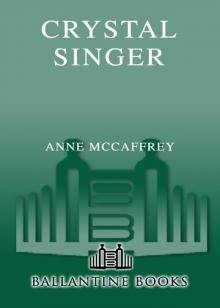 Crystal Singer
Crystal Singer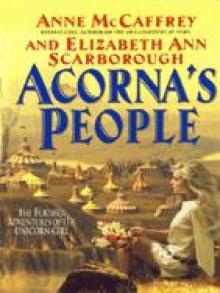 Acorna’s People
Acorna’s People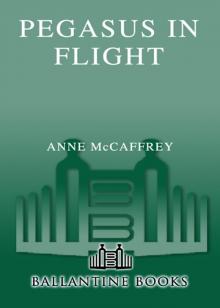 Pegasus in Flight
Pegasus in Flight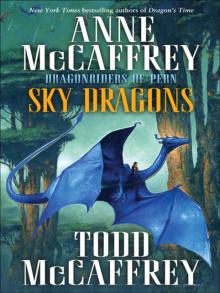 Sky Dragons Dragonriders of Pern
Sky Dragons Dragonriders of Pern Dragonriders of Pern 4 - Dragonsinger
Dragonriders of Pern 4 - Dragonsinger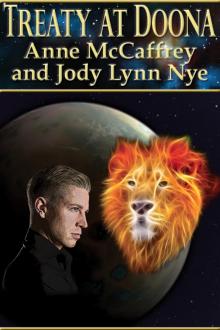 Treaty at Doona
Treaty at Doona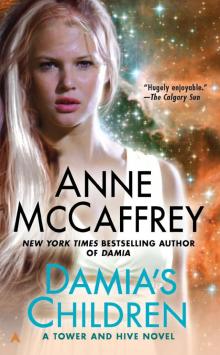 Damia's Children
Damia's Children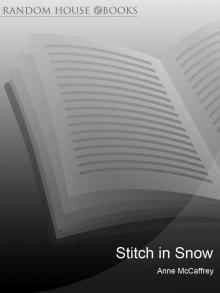 Stitch In Snow
Stitch In Snow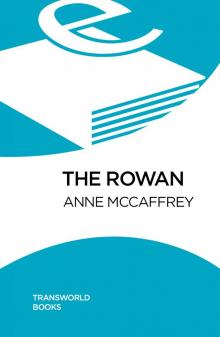 The Rowan
The Rowan Dinosaur Planet
Dinosaur Planet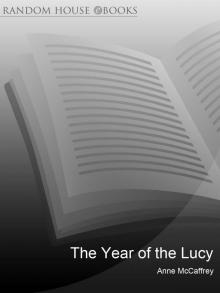 The Year of the Lucy
The Year of the Lucy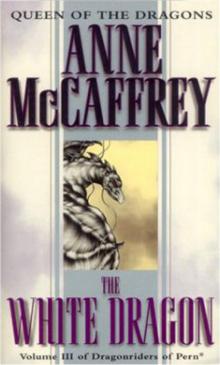 The White Dragon p-4
The White Dragon p-4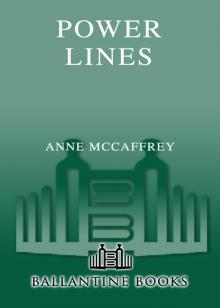 Power Lines
Power Lines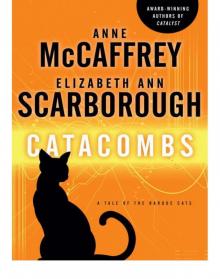 Catacombs
Catacombs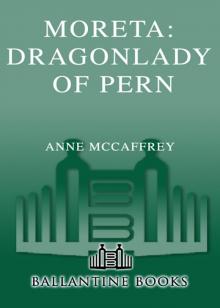 Moreta
Moreta Dragonsinger
Dragonsinger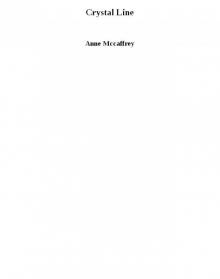 Crystal Line
Crystal Line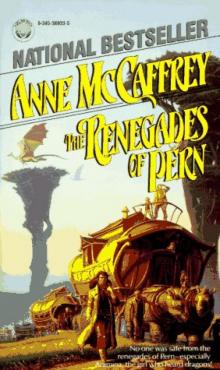 The Renegades of Pern
The Renegades of Pern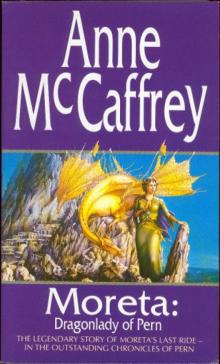 Moreta - Dragonlady of Pern p-8
Moreta - Dragonlady of Pern p-8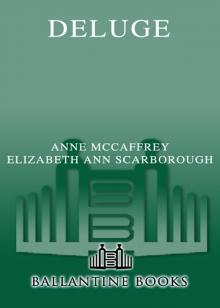 Deluge
Deluge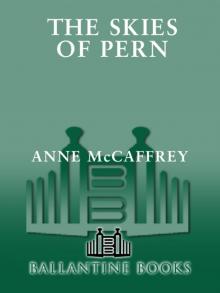 The Skies of Pern
The Skies of Pern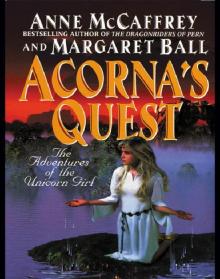 Acorna's Quest
Acorna's Quest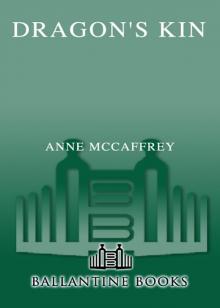 Dragon's Kin
Dragon's Kin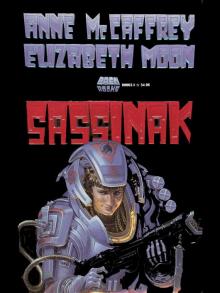 Sassinak
Sassinak![Crystal Universe - [Crystal Singer 03] - Crystal Line Read online](http://i1.bookreadfree.com/i1/03/31/crystal_universe_-_crystal_singer_03_-_crystal_line_preview.jpg) Crystal Universe - [Crystal Singer 03] - Crystal Line
Crystal Universe - [Crystal Singer 03] - Crystal Line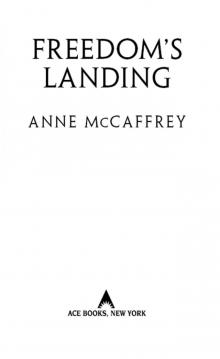 Freedom's Landing
Freedom's Landing Acorna’s Quest
Acorna’s Quest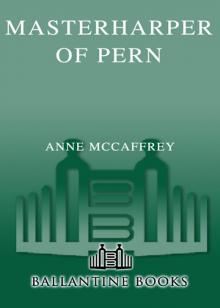 Masterharper of Pern
Masterharper of Pern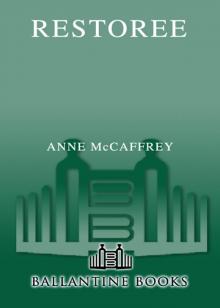 Restoree
Restoree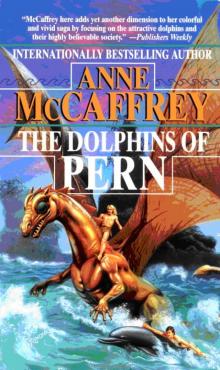 Dolphins of Pern
Dolphins of Pern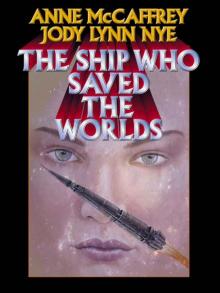 The Ship Who Saved the Worlds
The Ship Who Saved the Worlds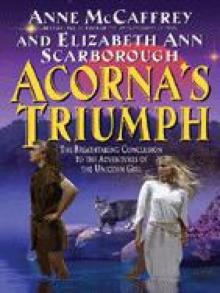 Acorna's Triumph
Acorna's Triumph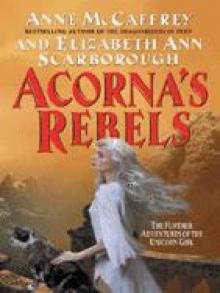 Acorna's Rebels
Acorna's Rebels![[Acorna 08] - First Warning: Acorna's Children (with Elizabeth Ann Scarborough) Read online](http://i1.bookreadfree.com/i1/04/06/acorna_08_-_first_warning_acornas_children_with_elizabeth_ann_scarborough_preview.jpg) [Acorna 08] - First Warning: Acorna's Children (with Elizabeth Ann Scarborough)
[Acorna 08] - First Warning: Acorna's Children (with Elizabeth Ann Scarborough)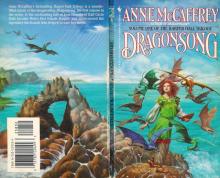 Dragonsong (dragon riders of pern)
Dragonsong (dragon riders of pern) Dragonriders of Pern 6 - Dragondrums
Dragonriders of Pern 6 - Dragondrums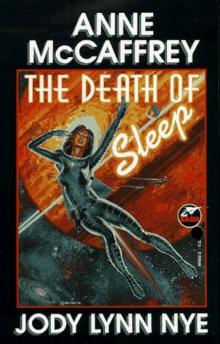 The Death of Sleep
The Death of Sleep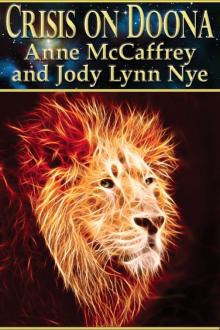 Crisis On Doona
Crisis On Doona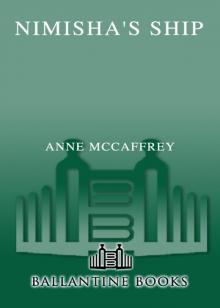 Nimisha's Ship
Nimisha's Ship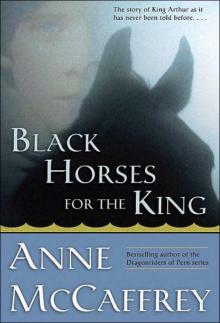 Black Horses for the King
Black Horses for the King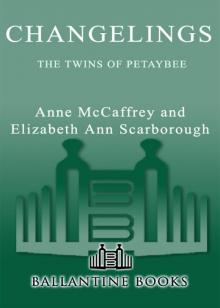 Changelings
Changelings Freedom's Choice
Freedom's Choice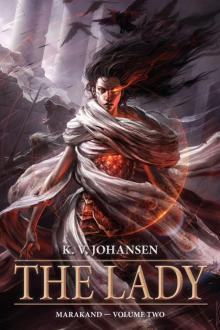 The Lady
The Lady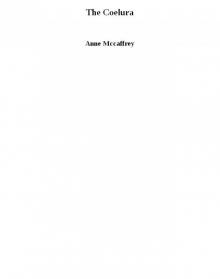 The Coelura
The Coelura Catalyst
Catalyst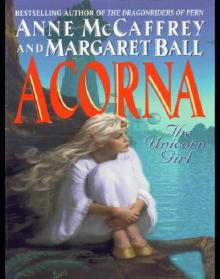 The Unicorn Girl
The Unicorn Girl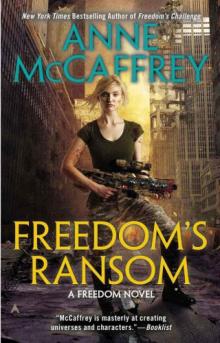 Freedom's Ransom
Freedom's Ransom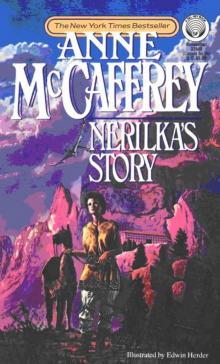 Nerilka's Story
Nerilka's Story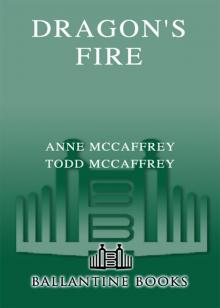 Dragon's Fire
Dragon's Fire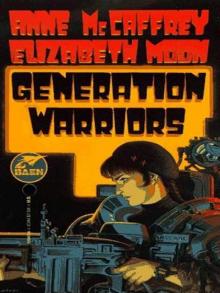 Generation Warriors
Generation Warriors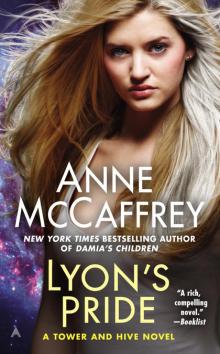 Lyon's Pride
Lyon's Pride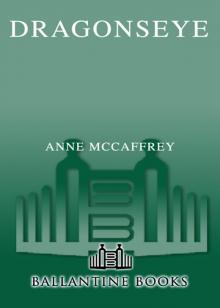 Dragonseye
Dragonseye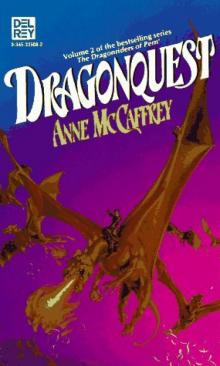 Dragon Quest
Dragon Quest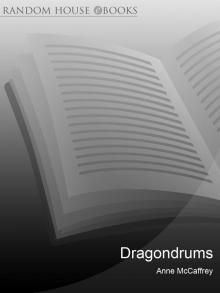 Dragondrums
Dragondrums Dragonsong
Dragonsong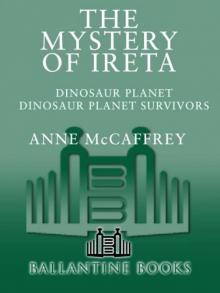 The Mystery of Ireta
The Mystery of Ireta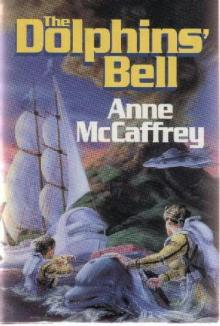 Dolphins' Bell
Dolphins' Bell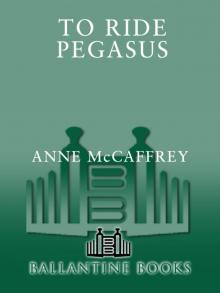 To Ride Pegasus
To Ride Pegasus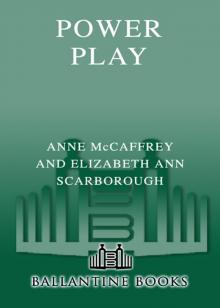 Power Play
Power Play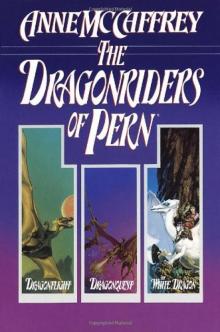 The Dragonriders of Pern
The Dragonriders of Pern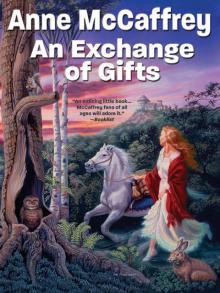 An Exchange of Gifts
An Exchange of Gifts The Ship Who Sang
The Ship Who Sang Sky Dragons: Dragonriders of Pern
Sky Dragons: Dragonriders of Pern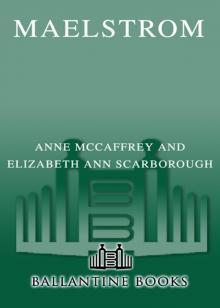 Maelstrom
Maelstrom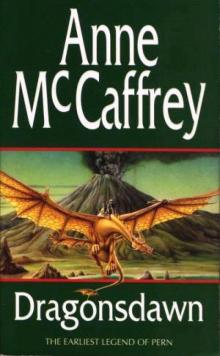 Dragons Dawn
Dragons Dawn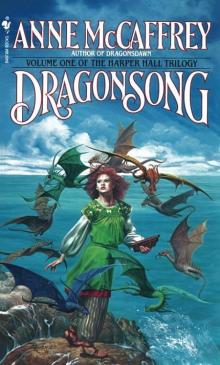 Dragon Song
Dragon Song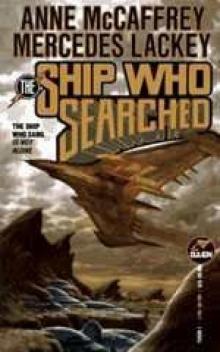 The Ship Who Searched b-3
The Ship Who Searched b-3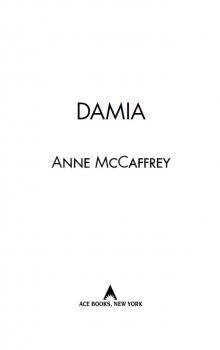 Damia
Damia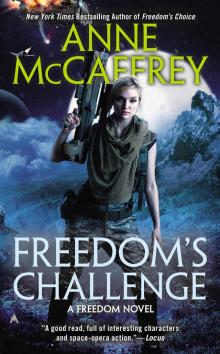 Freedom's Challenge
Freedom's Challenge